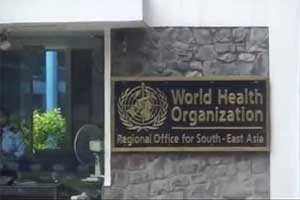- Home
- Medical news & Guidelines
- Anesthesiology
- Cardiology and CTVS
- Critical Care
- Dentistry
- Dermatology
- Diabetes and Endocrinology
- ENT
- Gastroenterology
- Medicine
- Nephrology
- Neurology
- Obstretics-Gynaecology
- Oncology
- Ophthalmology
- Orthopaedics
- Pediatrics-Neonatology
- Psychiatry
- Pulmonology
- Radiology
- Surgery
- Urology
- Laboratory Medicine
- Diet
- Nursing
- Paramedical
- Physiotherapy
- Health news
- Fact Check
- Bone Health Fact Check
- Brain Health Fact Check
- Cancer Related Fact Check
- Child Care Fact Check
- Dental and oral health fact check
- Diabetes and metabolic health fact check
- Diet and Nutrition Fact Check
- Eye and ENT Care Fact Check
- Fitness fact check
- Gut health fact check
- Heart health fact check
- Kidney health fact check
- Medical education fact check
- Men's health fact check
- Respiratory fact check
- Skin and hair care fact check
- Vaccine and Immunization fact check
- Women's health fact check
- AYUSH
- State News
- Andaman and Nicobar Islands
- Andhra Pradesh
- Arunachal Pradesh
- Assam
- Bihar
- Chandigarh
- Chattisgarh
- Dadra and Nagar Haveli
- Daman and Diu
- Delhi
- Goa
- Gujarat
- Haryana
- Himachal Pradesh
- Jammu & Kashmir
- Jharkhand
- Karnataka
- Kerala
- Ladakh
- Lakshadweep
- Madhya Pradesh
- Maharashtra
- Manipur
- Meghalaya
- Mizoram
- Nagaland
- Odisha
- Puducherry
- Punjab
- Rajasthan
- Sikkim
- Tamil Nadu
- Telangana
- Tripura
- Uttar Pradesh
- Uttrakhand
- West Bengal
- Medical Education
- Industry
5.4 lakh unreported TB cases in India: WHO

New Delhi: Around 5.4 lakh tuberculosis cases went unreported last year in India which is among the top eight countries with the highest burden of the disease, according to the World Health Organization's Global TB report. It, however, stated the number of tuberculosis patients in India reduced by around 50,000 in 2018 compared to the previous year.
In 2017, India had 27.4 lakh tuberculosis patients which came down to 26.9 lakh in 2018. Also, tuberculosis incidence per 100,000 population has decreased from 204 in 2017 to 199 in 2018.
"Globally, 3 million tuberculosis cases go unreported to national TB programmes across the world. In India, of the estimated 2.69 million cases emerging in 2018, 2.15 million were reported to the Government of India - a gap of 5,40,000 patients who are going unreported," the WHO report said.
The number of patients being tested for resistance towards rifampicin, a frontline anti-tuberculosis drug has increased from 32 per cent in 2017 to 46 per cent in 2018. The treatment success rate has increased to 81 per cent for new and relapse cases in 2017 from 69 per cent in 2016.
With more people receiving life-saving treatment for tuberculosis in 2018 than ever before, largely due to improved detection and diagnosis, the Global TB Report stated that 2018 also saw a reduction in the number of tuberculosis deaths worldwide with 1.5 million people having died from the disease in 2018, down from 1.6 million in 2017.
"The number of new cases of tuberculosis has been declining steadily in recent years. However, the burden remains high among low-income and marginalized populations around 10 million people developed tuberculosis in 2018," the report stated.
Drug resistance remains another impediment to ending the disease. In 2018, there were an estimated half a million new cases of drug-resistant tuberculosis across the world and only one in three of these people was enrolled for treatment.
New WHO guidance aims to improve the treatment of multi-drug resistant TB, by shifting to fully oral regimens that are safer and more effective. The guidance is part of a larger package of steps released on March 24, 2019, World TB Day to help countries speed up efforts to end the disease.
Read Also: Health Ministry signs MoU to explore AI solutions in combating TB
The report highlighted that fragile health infrastructure and workforce shortages make it difficult to provide timely diagnosis and the right treatments for tuberculosis. Besides, weak reporting systems are another problem as health providers may treat people but fail to report cases to national authorities, leaving an incomplete picture of national epidemics and service needs.
Further, up to 80 per cent of TB patients in high-burden countries spend more than 20 per cent of their annual household income on treating the disease.
"Sustained progress on tuberculosis will require strong health systems and better access to services. That means a renewed investment in primary health care and a commitment to universal health coverage," WHO Director-General Dr Tedros Adhanom Ghebreyesus said.
Read Also: NO Nod to medical colleges running without ART, MDR TB centres: MCI Gazette


